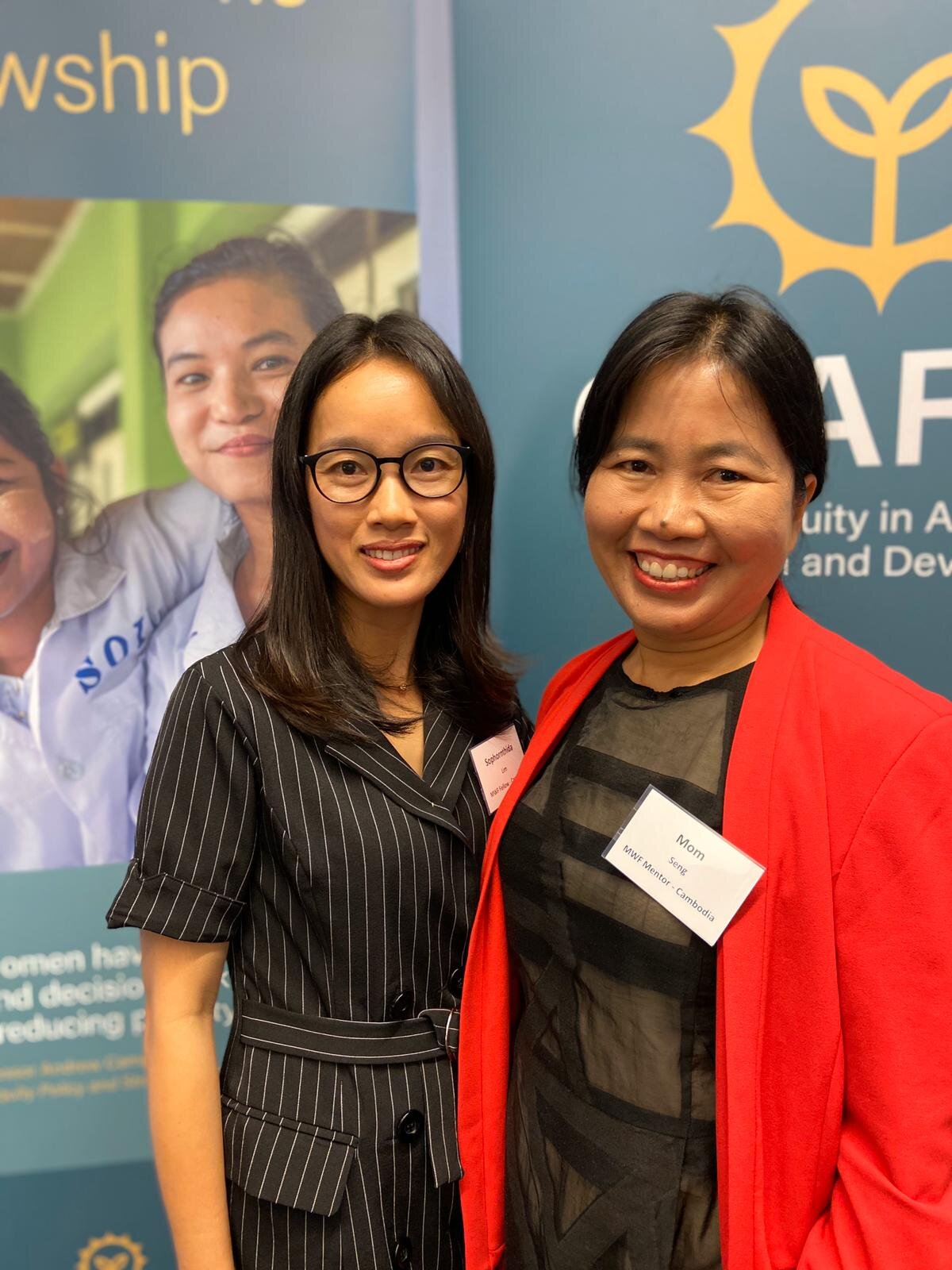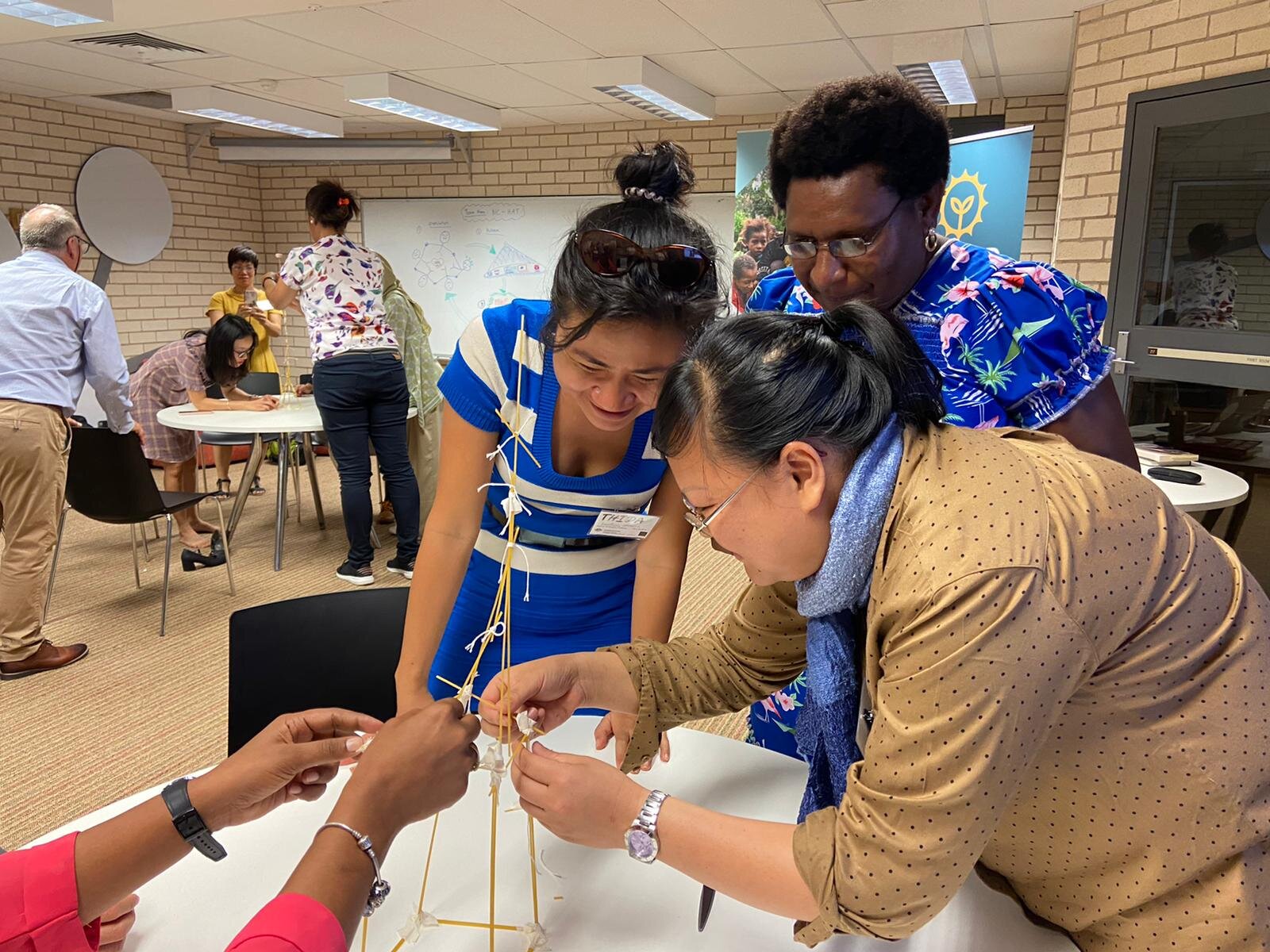Food security and gender issues under a research lens in Cambodia
The impact of the COVID-19 pandemic on food security in Cambodia is just beginning to be understood and the potential for a food crisis in the coming months is very real. Meryl Williams Fellows Dr Sonnthida Sambath and Sophornthida Lim have been awarded an ACIAR Research Support Facility grant to examine the impact of the pandemic on access to vegetables in Cambodia.
Their work will look at how the pandemic has affected the price of vegetables and examine how the Royal Government of Cambodia responded to stabilise the vegetable value chain and ensure nutritious food supplies.



The response included rapid changes to the Cambodian agricultural sector such as a doubling of vegetable production. The research project will look into the role of women in the decision-making processes that led to these changes and what the gender dynamics of rapid changes in the agricultural sector are so that these dynamics can be factored into future planning.
Sonnthida and Sophornthida are both researchers at the Cambodian Agricultural Research and Development Institute (CARDI) and worked together to apply for the ACIAR funding. They approached the task as a learning opportunity and hoped that their partnership might also inspire their colleagues – particularly other female researchers - to recognise the value of teamwork. Sonnthida told us:
“Sophornthida will be bringing her expertise in social research, especially linking the role of women in the agriculture sector. I will bring strong leadership and my coordination skills to make sure that we achieve the research objectives or goals. Together, we can inspire other women in our organisation to work and produce something that is recognisable for our organisation and contribute to sustainable development in Cambodia”.
Both women are excited about the experience and skills development that this new project will give them. However, the driving force behind the project is a genuinely heartfelt desire to contribute to the well-being and health of communities in Cambodia. Sonnthida said:
“This research will contribute to our vegetable industry getting up to the point that we are self-sufficient. I always want to see that Cambodians can get access to safe, nutritious food. Vegetables play an important role in this. The work also reminds me of my childhood, visiting my grandparents’ farm and being able to harvest vegetables and seeing everyone in the household playing their roles to make a living.”
GEAReD Lead Trainer Dr Rebecca Spence was a driving force in the design of the Meryl Williams Fellowship. During the program’s first learning camp in January 2020 at the University of New England in Armidale Australia, Dr Spence built strong relationships with each of the Fellows, supporting them as they embarked upon an intensive and often challenging leadership course. Dr Spence told us:
“It is wonderful to see this research cooperation amongst our MWF. One of the aims of our women’s leadership program is to generate a thriving network of women who can support one another and work together to make an impact in their respective communities. This research project is evidence that we are achieving what we set out to do. I am very proud of our Cambodian fellows.”
